How Whitney Houston came to life in ‘I Wanna Dance With Somebody’
As a producer of the new Whitney Houston biopic “I Wanna Dance With Somebody” — which opens in theaters on Friday — iconic music exec Clive Davis got “so emotional” reliving the moment when he discovered the pop superstar known as the Voice.
“When she went into ‘The Greatest Love of All,’ I was stunned,” Davis, 90, told The Post about Houston’s 1983 performance at Sweetwaters club on the Upper West Side. “That was a song that I had commissioned personally for the movie on the life of Muhammad Ali [1977’s ‘The Greatest’], and it was recorded by George Benson. But when I saw this incredibly beautiful 19-year-old girl step to the microphone and find meaning in that song that I had never heard … I mean, it was such an astonishing and emotional, vivid memory for me.”
Houston’s now-definitive version of “The Greatest Love of All” went on to become one of seven consecutive No. 1 hits that she had from 1985 to 1988. That’s a record that still stands as part of the singer’s legendary legacy that, 10 years after her death, is celebrated in “I Wanna Dance With Somebody.”
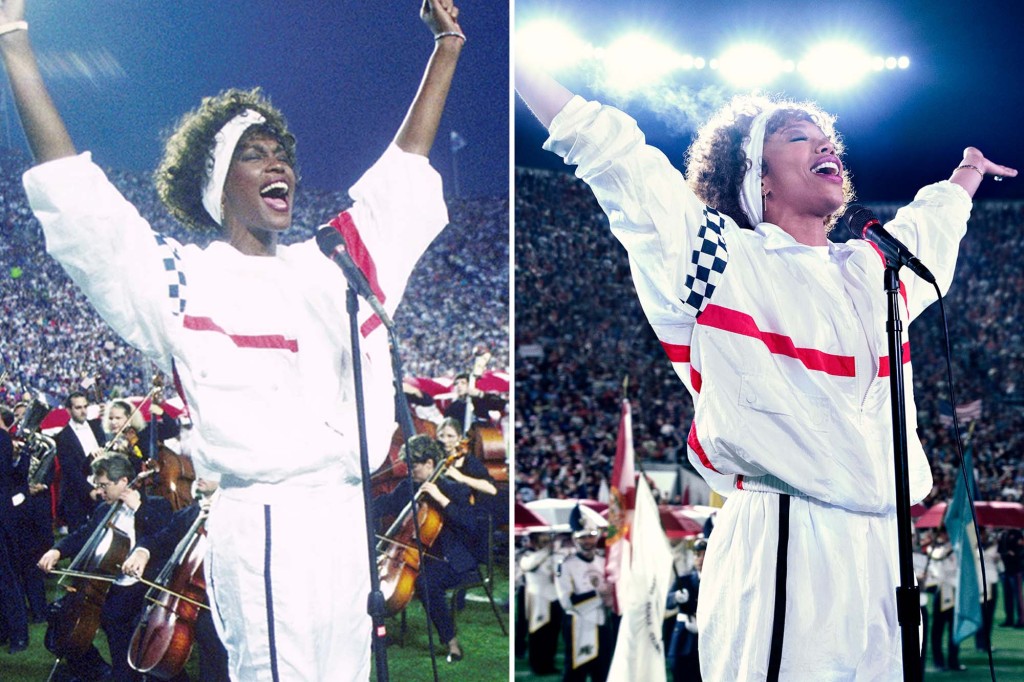
“This kind of biopic was really necessary as clearly the finest singer of her generation,” said Davis, who connected with “Bohemian Rhapsody” screenwriter Anthony McCarten to pen a script that struck a balance between “celebrating her once-in-a-lifetime talent but also being forthright on [her troubles].”
While British actress Naomi Ackie stars as Houston in the film, Davis knew that the real thing was all the voice that he needed. “It was totally gonna be Whitney [singing] from the beginning,” he said.
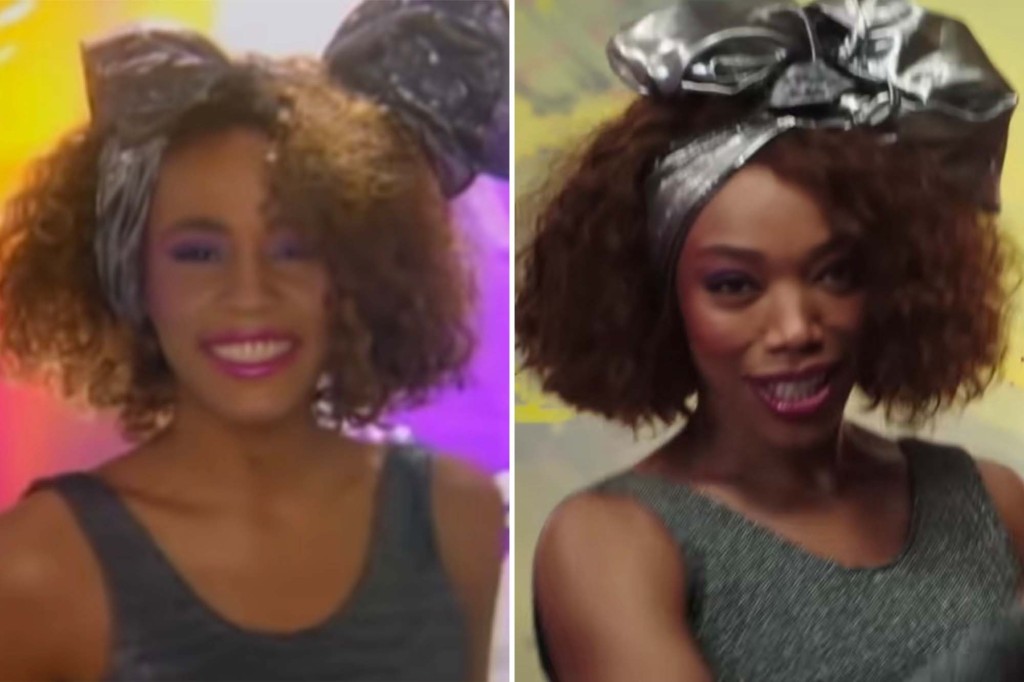
Davis — who himself is portrayed by Stanley Tucci — schooled both Ackie and director Kasi Lemmons on the magical musical moments that capture Houston in her live element. “Before the movie was shot,” he said, “I had the director and Naomi come to my weekend home in Westchester, where I have a theater, and I went over all the definitive performances of Whitney.”
The live showcases painstakingly re-created include Houston’s TV debut singing “Home” on “The Merv Griffin Show” in 1983, her epic rendition of “The Star-Spangled Banner” at the 1991 Super Bowl and 1994’s’ “Whitney: The Concert for a New South Africa.” “There was no concert that affected her more than that concert in honor of Nelson Mandela,” said Davis.
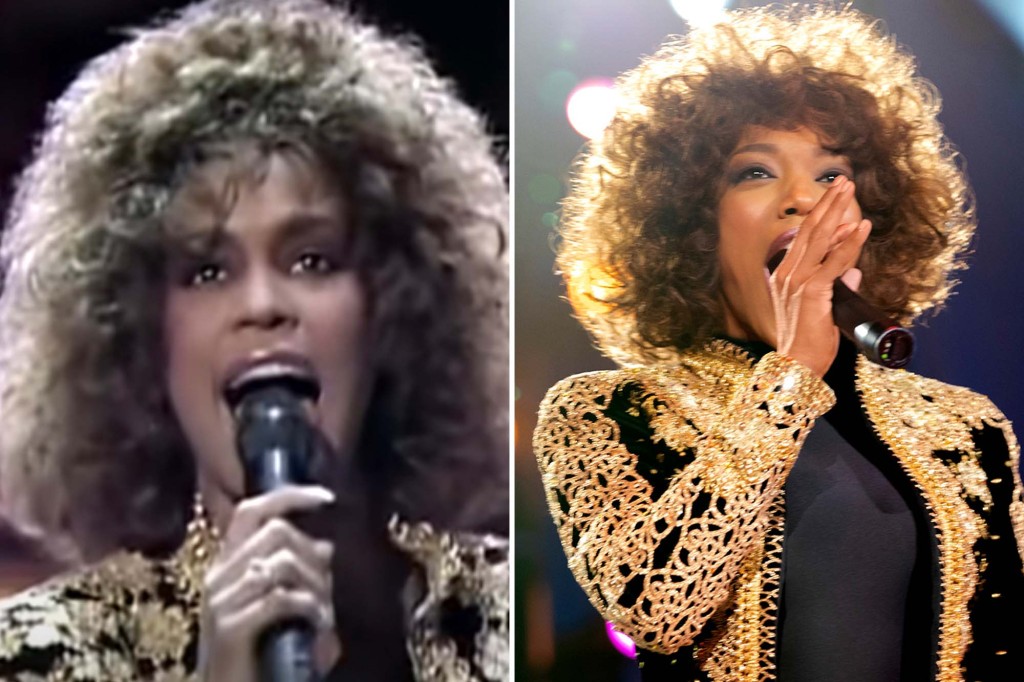
“I Wanna Dance With Somebody” also rewinds back to some classic Houston videos, from 1985’s “How Will I Know” to 1998’s “It’s Not Right but It’s Okay.” And in the context of a biopic, those songs tell more of Houston’s personal story.
“It was very much a process of developing those songs so that they would give Whitney a voice in her own film, that she would express how she felt about that period of her life and what was going on with her,” said music supervisor Maureen Crowe, who worked with Houston on 1992’s “The Bodyguard,” 1996’s “The Preacher’s Wife” and 1997’s “Cinderella.” “So ‘I Will Always Love You’ captures the highs of getting married and having a baby, all those things that emotionally she had wanted so much.”
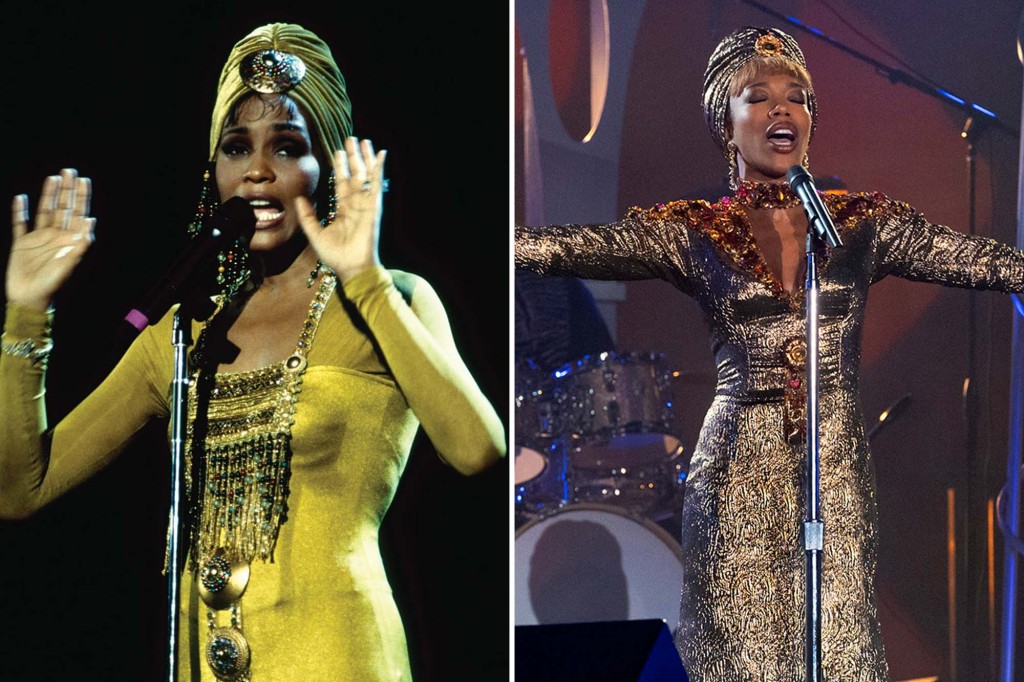
As depicted in the film, it was Houston’s troubled marriage to Bobby Brown that had her reconsider recording “Why Does It Hurt So Bad” — off 1995’s “Waiting To Exhale” soundtrack — after originally turning it down in a rare disagreement with Davis. “It’s totally accurate that when there was one betrayal too much from Bobby … I played that song for her, and she said, ‘I’m ready,’ ” he said.
But for Davis, it’s a non-music moment in “I Wanna Dance With Somebody” that hit hardest. That’s when Houston died — from an accidental drowning after years of drug abuse — just hours before his 2012 pre-Grammy gala at the Beverly Hilton in Los Angeles.
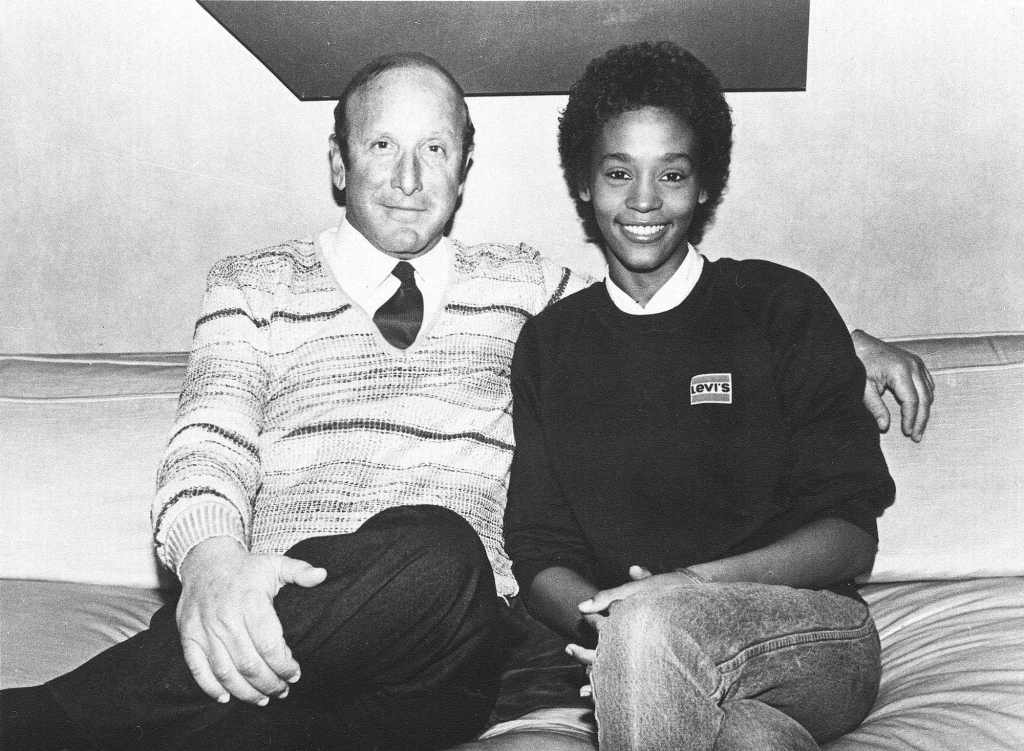
“We spent the entire afternoon together two days before, and she was so herself,” he said. “She showed me how serious she was about coming back to full form. And we were looking at her schedule for her to go in to record a new album. So it was so shocking when I got the call. There was just no indication, spending all that time with her so close, that this lethal addiction would have such a tragic ending.”
After Houston’s death, though, the movie ends on a triumphant note with her 1994 American Music Awards medley of “I Loves You, Porgy,” “And I Am Telling You I’m Not Going” and “I Am Nothing.” “I did advocate to put in the whole [medley], to show her genius,” said Davis.
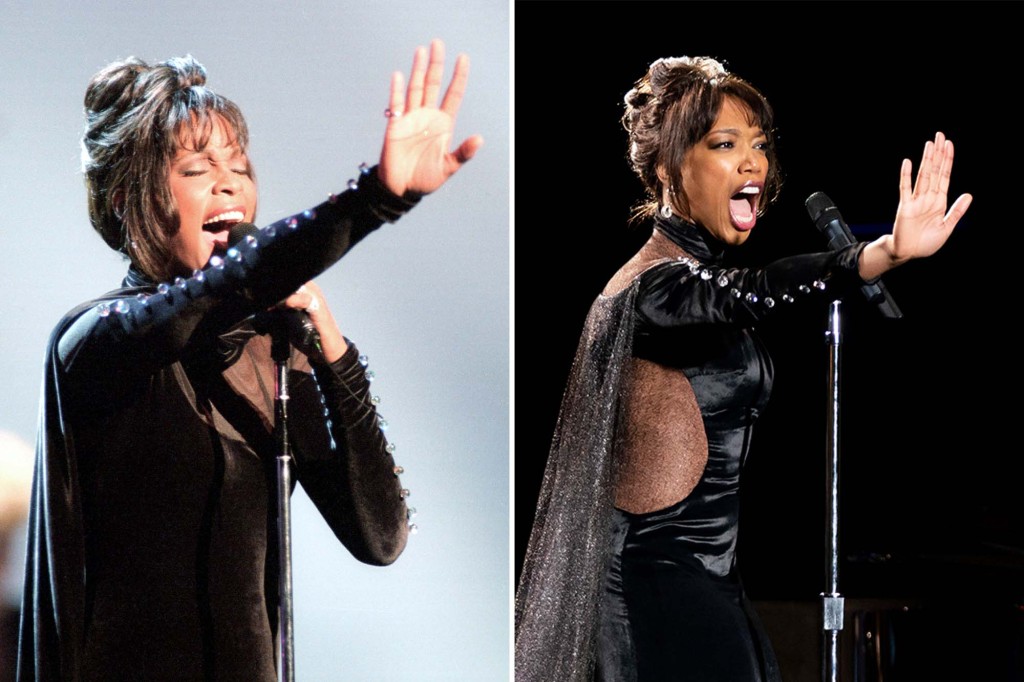
And Houston’s previously unreleased track “Don’t Cry for Me” — a live performance from a 1994 AIDS benefit that Davis had never heard before — features “uncanny” lyrics as it plays over the closing credits.
“You do think she’s singing from the grave,” said Crowe. “She was a Christian woman, so she knew this [life] wasn’t the end.”
Read the full article Here


